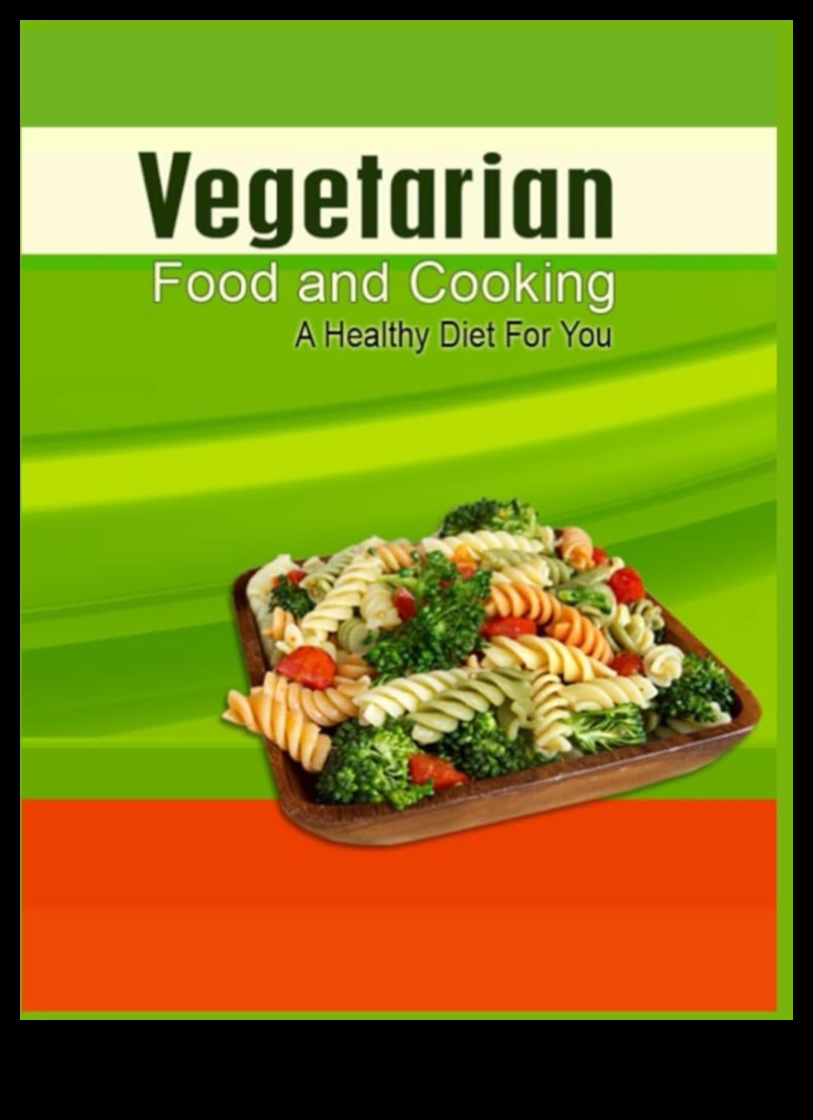
Vegetarianism is a diet that excludes meat, fish, and poultry. There are many reasons why people choose to eat a vegetarian diet, including ethical concerns about the treatment of animals, environmental concerns about the impact of animal agriculture on the planet, and health concerns about the consumption of meat.
Vegetarian diets can be very healthy and nutritious, and they can provide all the nutrients that the human body needs. In fact, a well-planned vegetarian diet can be healthier than a diet that includes meat.
This article will provide an overview of vegetarian diets, including the benefits of eating vegetarian, the different types of vegetarian diets, popular vegetarian recipes, and tips for transitioning to a vegetarian diet.
Benefits of Eating Vegetarian
There are many benefits to eating a vegetarian diet, including:
- Reduced risk of heart disease
- Reduced risk of certain types of cancer
- Lower blood pressure
- Improved cholesterol levels
- Increased energy levels
- Improved digestion
- Weight loss
Types of Vegetarian Diets
There are many different types of vegetarian diets, including:
- Veganism
- Lacto-vegetarianism
- Ovo-vegetarianism
- Pescatarianism
Each type of vegetarian diet has its own set of restrictions, but all vegetarian diets exclude meat, fish, and poultry.
Popular Vegetarian Recipes
There are many delicious vegetarian recipes available, including:
- Vegetarian chili
- Tofu scramble
- Vegetarian lasagna
- Vegetarian burgers
- Vegetarian pizza
- Vegetarian sushi
- Vegetarian pad thai
How to Transition to a Vegetarian Diet
Transitioning to a vegetarian diet can be a big change, but it can also be a very rewarding one. Here are a few tips for transitioning to a vegetarian diet:
- Start by gradually cutting out meat from your diet.
- Make sure to eat plenty of fruits, vegetables, and whole grains.
- Talk to your doctor or a registered dietitian to make sure that you are getting all the nutrients that you need.
- Find vegetarian recipes that you enjoy and that are easy to make.
- Don’t be afraid to ask for help from friends, family, or online support groups.
Tips for Eating Vegetarian on a Budget
Eating vegetarian on a budget is possible, but it does require some planning. Here are a few tips for eating vegetarian on a budget:
- Buy fruits and vegetables in season.
- Look for sales and coupons.
- Cook at home instead of eating out.
- Make your own vegetarian staples, such as tofu, tempeh, and seitan.
- Join a CSA or buy from a local farmer’s market.
Vegetarian Recipes for Beginners
If you are new to vegetarian cooking, here are a few simple recipes to get you started:
| Feature | Answer |
|---|---|
| Vegetarian | Yes |
| Healthy | Yes |
| Delicious | Yes |
| Cooking | Yes |
| Recipes | Yes |

II. Benefits of Eating Vegetarian
There are many benefits to eating a vegetarian diet, including:
- Reduced risk of heart disease, stroke, and type 2 diabetes
- Lower blood pressure
- Improved cholesterol levels
- Increased fiber intake
- Weight loss
- Reduced risk of some types of cancer
- Improved mood and energy levels
- Reduced inflammation
For more information on the benefits of eating a vegetarian diet, please visit the following resources:
- American Heart Association: Vegetarian and Vegan Diets
- Mayo Clinic: Vegetarian Diet
- WebMD: Health Benefits of a Vegetarian Diet
III. Types of Vegetarian Diets
There are many different types of vegetarian diets, each with its own set of rules and restrictions. Some of the most common types of vegetarian diets include:
-
Veganism is a strict form of vegetarianism that excludes all animal products, including meat, dairy, eggs, and honey.
-
Lacto-vegetarianism allows for the consumption of dairy products, but excludes meat, fish, and eggs.
-
Ovo-vegetarianism allows for the consumption of eggs, but excludes meat, fish, and dairy products.
-
Pescatarian diets allow for the consumption of fish and seafood, but exclude meat and poultry.
The type of vegetarian diet that is right for you will depend on your personal preferences and dietary needs. If you are new to vegetarianism, it is a good idea to start by gradually reducing your intake of animal products and gradually transitioning to a fully vegetarian diet.
IV. Popular Vegetarian Recipes
Here are some popular vegetarian recipes:
- Lentil soup
- Chickpea curry
- Tofu scramble
- Vegetarian chili
- Falafel
- Salad with grilled vegetables
- Quinoa with roasted vegetables
- Vegan pizza
- Baked sweet potato fries
How to Transition to a Vegetarian Diet
Transitioning to a vegetarian diet can be a big change, but it’s one that many people find to be both rewarding and healthy. If you’re thinking about making the switch, here are a few tips to help you get started:
- Start by gradually reducing the amount of meat and dairy in your diet. This will give your body time to adjust to the changes and help you avoid any potential side effects, such as fatigue or constipation.
- Make sure you’re getting enough protein from plant-based sources, such as beans, lentils, tofu, and nuts.
- Be sure to eat a variety of fruits, vegetables, and whole grains to ensure that you’re getting all the nutrients your body needs.
- Don’t be afraid to experiment with new recipes and find new ways to enjoy vegetarian dishes. There are many delicious and satisfying vegetarian meals out there, so you’re sure to find something you love.
Making the switch to a vegetarian diet can be a great way to improve your health and well-being. By following these tips, you can make the transition smoothly and enjoy all the benefits of a plant-based diet.

VI. Tips for Eating Vegetarian on a Budget
Vegetarian diets can be just as affordable as omnivorous diets, if you know how to shop and cook. Here are a few tips for eating vegetarian on a budget:
- Buy fruits and vegetables in season. They will be cheaper and taste better.
- Look for sales and coupons.
- Shop at farmer’s markets and ethnic grocery stores.
- Cook at home more often.
- Meatless meals can be just as satisfying and delicious as meals with meat.
For more tips on eating vegetarian on a budget, check out these resources:

VII. Vegetarian Recipes for Beginners
If you’re new to vegetarian cooking, there are a few things you can do to make the transition easier.
First, start by making simple swaps. For example, instead of meat, you can use tofu, tempeh, or beans in your favorite recipes. You can also try using plant-based milks and yogurts in place of dairy products.
Second, experiment with different flavors and cuisines. There are many delicious vegetarian dishes out there, so don’t be afraid to try new things. You might be surprised at how much you enjoy them!
Finally, don’t be afraid to ask for help. There are many resources available to help you learn how to cook vegetarian food. You can find cookbooks, websites, and even classes that can teach you everything you need to know.
Here are a few specific recipes that are perfect for beginners:
- Vegetarian chili
- Tofu scramble
- Lentil soup
- Salad with grilled vegetables
- Vegan lasagna
With a little bit of effort, you can easily transition to a vegetarian diet. Just remember to take things slow and enjoy the process!
VIII. Vegetarian Recipes for Kids
Vegetarian recipes for kids can be a great way to get your children to eat healthy and nutritious foods. There are many delicious and kid-friendly vegetarian recipes out there, so you’re sure to find something that your kids will love.
Here are a few tips for making vegetarian recipes for kids:
- Make sure the recipes are flavorful and appealing. Kids are more likely to eat foods that they enjoy the taste of.
- Use ingredients that your kids are familiar with. This will help them to feel more comfortable trying new foods.
- Let your kids help you prepare the food. This can be a fun and educational experience for them, and it will also help them to feel more invested in the meal.
- Serve the food in a fun and appealing way. Kids are more likely to eat food that looks and smells good.
Here are a few simple and delicious vegetarian recipes for kids:
- Vegetable Fritters
- Tortellini Soup
- Spaghetti with Tomato Sauce
- Omelet with Vegetables
- Baked Potatoes with Vegetables
For more vegetarian recipes for kids, check out the following resources:
- The Spruce Eats: Vegetarian Recipes for Kids
- BBC Good Food: Vegetarian Recipes for Kids
- Food Network: Vegetarian Recipes for Kids
With a little creativity and effort, you can easily create delicious and nutritious vegetarian meals for your kids. So what are you waiting for? Start cooking today!
As an athlete, you need to make sure that you are getting enough protein and other nutrients to support your training and recovery. A vegetarian diet can provide all of the nutrients that you need to be healthy and perform at your best, but it is important to make sure that you are choosing the right foods.
Some good sources of protein for vegetarian athletes include:
- Beans and legumes
- Tofu and other soy products
- Nuts and seeds
- Whole grains
- Vegetables
You should also make sure to eat plenty of fruits, vegetables, and whole grains to get the vitamins, minerals, and fiber that you need.
Here are some tips for vegetarian athletes:
- Plan your meals ahead of time so that you have plenty of healthy options available.
- Make sure to eat a variety of foods to get all of the nutrients that you need.
- Don’t be afraid to use supplements to help you meet your nutritional needs.
- Listen to your body and eat when you are hungry.
With a little planning and effort, you can easily meet your nutritional needs as a vegetarian athlete and perform at your best.
Typical Questions
Here are some of the most common questions about vegetarian diets and eating habits:
Question 1: What are the benefits of eating a vegetarian diet?
Answer 1: There are many potential benefits to eating a vegetarian diet, including:
- Reduced risk of heart disease, stroke, and type 2 diabetes
- Lower blood pressure
- Improved cholesterol levels
- Increased energy levels
- Weight loss
- Reduced risk of some types of cancer
Question 2: What are the different types of vegetarian diets?
Answer 2: There are many different types of vegetarian diets, including:
- Vegan: A vegan diet excludes all animal products, including meat, dairy, eggs, and honey.
- Vegetarian: A vegetarian diet excludes meat but allows for dairy, eggs, and honey.
- Lacto-vegetarian: A lacto-vegetarian diet excludes meat and eggs but allows for dairy products.
- Ovo-vegetarian: An ovo-vegetarian diet excludes meat and dairy products but allows for eggs.
- Flexitarian: A flexitarian diet is a semi-vegetarian diet that includes meat on occasion.
Question 3: How do I transition to a vegetarian diet?
Answer 3: Transitioning to a vegetarian diet can be a gradual process. Here are a few tips to help you get started:
- Start by cutting out meat from one or two meals per week.
- Find vegetarian recipes that you enjoy and that are easy to make.
- Talk to your doctor or a registered dietitian to make sure that you are getting the nutrients you need.
- Be patient with yourself and don’t get discouraged if you slip up.